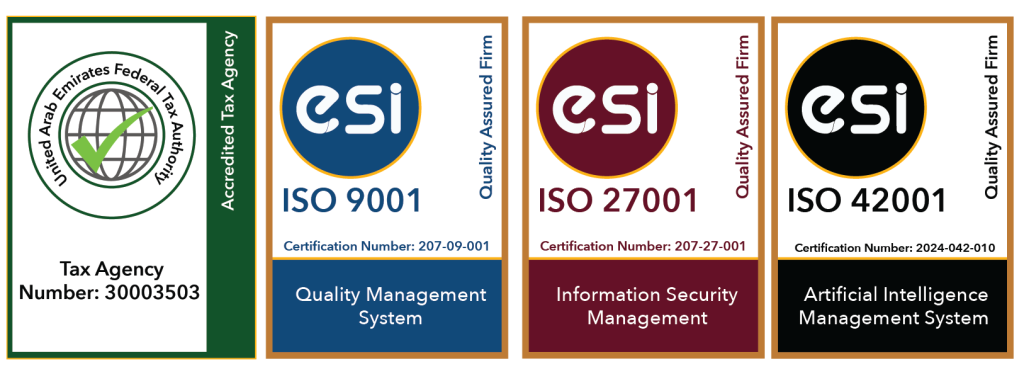For UAE business owners, managing a diverse workforce while staying compliant with evolving regulations presents significant challenges. The UAE Ministry of Economy highlights SMEs account for 94% of registered businesses and employ over 86% of the private-sector workforce.
This article examines recent Labor Law changes, compliance requirements, workforce management issues, and how digital HR systems and PRO services help businesses succeed in the UAE’s dynamic market.
Understanding Labour Law Reforms
The UAE’s Ministry of Human Resources and Emiratisation (MOHRE) introduced new labour laws to strengthen worker protections and corporate accountability. Businesses are required to adapt to these changes to avoid penalties. The table below summarizes key updates:
| Reform | Old Law | New Law |
| Maternity Leave | 45 days | 60 days (15 half-paid) |
| Non-Compete Clauses | No specific limit | Up to 2 years, with clear terms |
| Dispute Resolution | No binding decisions | MOHRE binding decisions up to AED 50,000 |
| Time for Labor Claims | 1 year from termination | 2 years from termination |
Key changes include:
- Salary Protection During Disputes: Employers must pay salaries for up to two months during employment disputes.
- Flexible Work Arrangements: Remote, temporary, and part-time roles require written agreements compliant with the Personal Data Protection Law (PDPL), specifying hours and data security.
- Dispute Resolutions: MOHRE issues binding decisions for claims up to AED 50,000, with enforceable “Writ of Execution” status.
- Extended Claim Periods: Employees now have two years from termination to file claims, up from one year.
- Increased Penalties: Violations, such as employing workers without permits, carry fines from AED 100,000 to AED 1 million.
- Extended Maternity Leave: Paid leave has increased to 60 days, with 15 days half-paid, supporting employee well-being.
- Non-Compete Clauses: Enforceable for up to two years with clear terms; employees can challenge restrictive clauses in court.
These reforms reinforce the UAE’s commitment to a transparent labour market and responsible corporate governance.
Emiratisation Targets (Nafis Program – 2025 Updates)
Under the UAE’s Nafis Emiratisation Program, private sector companies with 50 or more skilled employees must:
- Increase their Emirati workforce in skilled roles by 2% annually until reaching 10% by 2026.
- By January 2025, companies are required to have achieved 6% Emiratisation in skilled positions.
- Penalties apply for non-compliance: companies face monthly fines starting from AED 8,000 for each missing Emirati hire, with the fine amount rising each year.
Companies with fewer than 50 employees are exempt from the mandatory quota but are encouraged to leverage Nafis incentives to attract Emirati talent.
This program remains central to the UAE’s labour market strategy and ensures greater representation of UAE nationals in the private sector.
️ End of Service Benefits & Savings Scheme (EOSS – 2025 Updates)
Employee end-of-service benefits vary depending on jurisdiction:
- Mainland UAE: Employees are entitled to statutory end-of-service gratuity under the Federal Labour Law. In 2024, MOHRE introduced a voluntary End-of-Service Savings Scheme (EOSS), which is being phased in gradually but remains optional for most mainland companies at this stage.
- DIFC & ADGM Free Zones: Employers are mandated to participate in workplace savings plans. In DIFC, this is the DEWS Plan, while ADGM has a parallel scheme. These replace the traditional gratuity system.
Many mainland employers are voluntarily opting into savings schemes to strengthen employee financial planning, enhance benefits, and reduce long-term liability risks
HR Compliance in the UAE: What Businesses Must Know
Compliance with UAE labor laws is essential and provides clarity under any employment disputes. Penalties for violations now range from AED 100,000 to AED 1 million for issues such as employing workers without permits or failing to settle employee rights.
Businesses must maintain digital employee records, process salaries through the Wage Protection System (WPS), contribute to the End of Service Savings Scheme (EOSS), and follow MOHRE’s digital audit processes. Failing to comply can result in penalties, such as AED 1,000 per employee for WPS violations, or damage to a company’s reputation. For SMEs with limited HR workforce, the absence of efficient process, controls and systems amplifies these risks.
Challenges in Workforce Management:
The UAE’s workforce, with employees from over 200 nationalities, represents and cultural challenge, bringing diverse cultural norms that require inclusive policies. High turnover in sectors such as retail and hospitality adds to recruitment and training costs. Tracking visas and permits across jurisdictions, such as mainland and free zones, can also be complex.
Integrating digital HR platforms, Employee self-service and other tools improves scheduling accuracy and communication. In their absence, businesses face increased risk of miscommunication, scheduling conflicts, and operational disruptions.
How Digital HR Platforms Simplify Workforce Management
Digital HR solutions address these challenges by automating routine and complex tasks. Key benefits include:
- Payroll Integration with WPS: Ensures accurate and timely salary payments aligned with regulatory requirements including accurate end of service calculations.
- Employee Self-Service Portals: Empower staff to manage personal records, leave requests, and document submissions independently.
- Workforce Analytics: Provide insights into absenteeism, productivity trends, and skill gaps to support strategic decision-making.
These systems reduce manual errors, improve compliance, and promote consistent HR practices across the organization.
Performance Management and Employee Retention
Beyond administrative efficiency, HRM plays a strategic role in retaining talent and driving performance. Regular performance reviews create opportunities for feedback and goal alignment. Clear career progression framework and upskilling programs increase employee motivation and loyalty. Data from HR systems identify skill shortages, enabling targeted training investments that strengthen workforce capabilities.
For SMEs and startups, adopting these practices early in their development help reduce costly turnover and support sustainable growth.
Why Digital HR Is Important for UAE-Based SMEs and Startups
SMEs and startups benefit significantly from digital HR systems, which handle tasks like payroll and visa tracking, optimizing limited HR resources. Features like automated payroll, visa renewal reminders, and multilingual interfaces simplify operations. In the UAE’s competitive market, these tools provide a significant advantage for smaller businesses seeking to scale their operations.
Addressing Industry-Specific Needs
HR requirements differ across industries in the UAE. Logistics firms need geo-tracked attendance systems, retail businesses require automated shift scheduling, tech startups benefit from remote onboarding tools, and healthcare providers need license tracking. Customized HRM solutions help businesses meet these specific needs while maintaining compliance.
The Role of PRO Services in Workforce Management
PRO services manage critical administrative functions, including labour contracts, visa renewals, Emirates ID applications, and government attestations. They also facilitate the centralization of employee records across both mainland and free zone authorities. Outsourcing PRO services enables internal HR teams to focus on strategic priorities, particularly as compliance processes become more digitized.
Combining Digital HR and PRO Services
Integrating digital HR platforms with PRO services creates a comprehensive HR framework. Automated payroll, employee portals, and analytics dashboards work alongside PRO support for government processes.
The Impact of Weak HR Management
Poor HR management leads to costly WPS violations and fines exceeding AED 1 million. It increases employee turnover, drives up recruitment costs, and disrupts productivity during audits. Implementing structured HR systems and PRO services helps businesses mitigate these risks and maintain compliance.
Conclusion
In the UAE’s diverse and competitive market, employee management is a strategic function that supports workforce stability and business continuity. By adapting to 2025 labour law changes, meeting compliance requirements, and using digital HR systems and PRO services, businesses can build a productive, compliant workforce.
About SimplySolved
SimplySolved, an ISO 9001, 42001, and 27001-certified HRM and payroll provider, offers integrated HRM solutions tailored to the UAE market. Combining best in class HR platforms, outsourced HR business partner and payroll, and experienced in-house PRO services, SimplySolved simplifies HR operations while ensuring compliance with the current regulations.
We serve 100’s of clients acting to implement effective HR processes, platforms and payroll management as an external HR business partner. Our approach seeks to implement best in class platforms, manage compliance and payroll. We ensure business unfamiliar or focused on core operations to receive cost-effective, quality driven guidance and HR & payroll support from an experienced partner.






